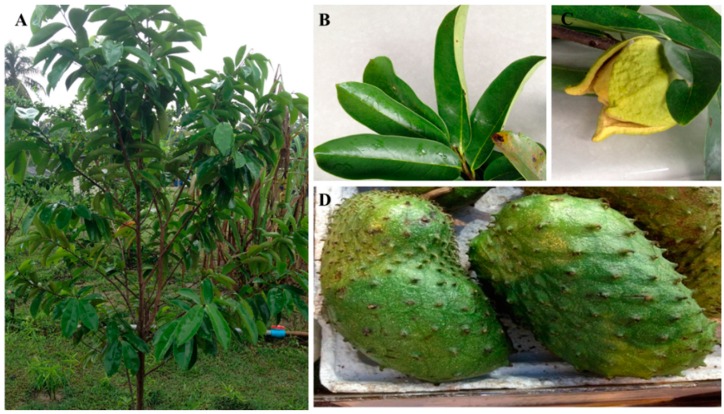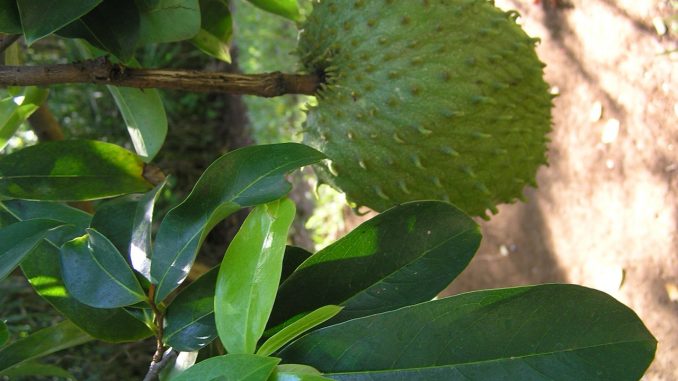The properties of Graviola
Graviola (Annona Muricata) is a species of the genus Annona of the custard apple tree family, Annonaceae, which has edible fruit. The fruit is usually called soursop due to its slightly acidic taste when ripe.
Raw soursop is 81% water, 17% carbohydrates, 1% protein, and has negligible fat. In a 100 gram reference amount, the raw fruit supplies 66 calories, and contains only vitamin C as a significant amount (25%) of the Daily Value, with no other micronutrients in appreciable amounts.
The compound annonacin is contained in the fruit, seeds, and leaves of soursop. The leaves of Annona muricata contain annonamine, which is an aporphine-class alkaloid containing a quaternary ammonium group.
A wide array of ethnomedicinal activities is contributed to different parts of Annona Muricata, and indigenous communities in Africa and South America extensively use this plant in their folk medicine. Numerous investigations have substantiated these activities, including anticancer, anticonvulsant, anti-arthritic, antiparasitic, antimalarial, hepatoprotective and antidiabetic activities. Phytochemical studies reveal that annonaceous acetogenins are the major constituents of Annona Muricata. More than 100 annonaceous acetogenins have been isolated from leaves, barks, seeds, roots and fruits of Graviola(901).

The leaves of the plant have been extensively investigated for its diverse pharmacological aspects and found eminent for anti-inflammatory and anticancer properties(902).





























































